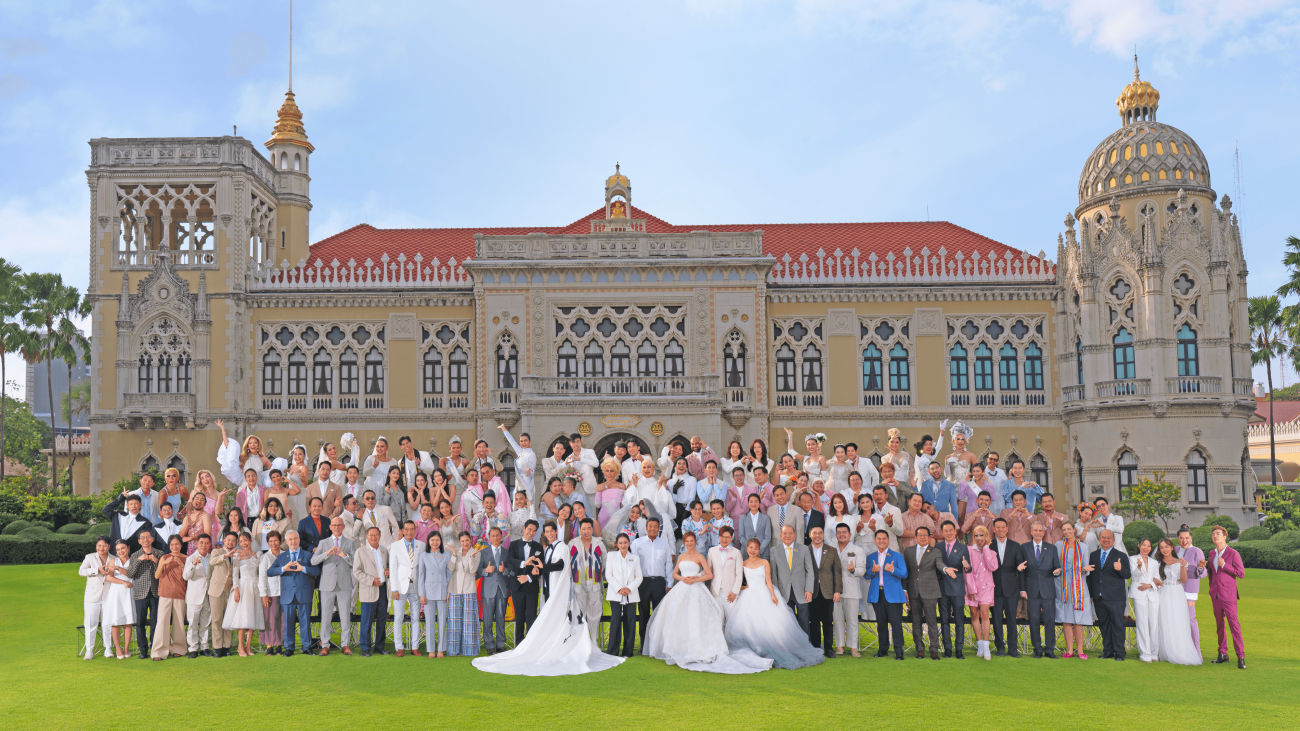Thailand is making history today as the first country in Southeast Asia to recognize marriage equality. By ensuring that all couples, regardless of their sexual orientation and gender identity, have the same rights to marry from the age of 18 and above, Thailand has sent a powerful message to the world: no one is left behind in love.
Thailand’s progress toward this milestone reflects its long-standing commitment to the human rights of and equality for the Lesbian, Gay, Bisexual, Trans, Intersex and Queer+ (LGBTIQ+) communities over the past two decades.
The 2007 Constitution prohibits unjust discrimination against persons based on sex and personal status. Thailand further demonstrated its commitment by voting in favor of key UN resolutions that strengthen human rights in relation to sexual orientation and gender identity in 2011 and 2012.
In 2015, the Gender Equality Act marked a significant legislative breakthrough, criminalizing gender-based discrimination and recognizing diverse gender identities, solidifying Thailand’s position as a leader in LGBTIQ+ human rights in the region.
In 2016, Thailand mandated that all educational institutions provide comprehensive sexuality education, including on gender norms and the rights of persons of diverse sexual orientation, and gender identity and expression.
These transformative changes, leading to the historic adoption of the Marriage Equality Act, were made possible through sustained advocacy, evolving social attitudes, strong community mobilization and leadership, and governmental commitment.
The Marriage Equality Act brings life-changing benefits to LGBTIQ+ individuals, couples, and families.
Gender-neutral terms such as "spouse" now replace "husband" and "wife" in the Civil and Commercial Code, ensuring equal rights in marriage, child adoption, healthcare decisions, inheritance, and more.
Notably, the legislation also raises the minimum age for marriage from 17 to 18, aligning with international standards on child rights.
Thailand’s landmark achievement aligns with its international human rights obligations.
Article 23 of the International Covenant on Civil and Political Rights (ICCPR), to which Thailand is a state party, guarantees the right to marry and establish a family.
Similarly, Article 16 of the Universal Declaration of Human Rights (UDHR) provides for the equality of rights in marriage.
Article 26 of the ICCPR and Article 2 of the UDHR further guarantee equal protection of the law without discrimination, a principle enshrined as a fundamental right under customary international law.
Thailand’s own Constitution, in Section 27, prohibits all forms of discrimination, reinforcing the nation’s commitment to these principles.
This month, in the lead-up to the law’s implementation, the UN Country Team in Thailand, comprising 21 UN entities, together with the Deputy Prime Minister and Minister of the Interior, convened all 77 governors.
The governors pledged to advance marriage equality and gender diversity.
Over 600 officials and representatives from civil society gathered at the UN Conference Centre in Bangkok, to celebrate and reaffirm their readiness to facilitate marriages under the new legislation.
This moment exemplified the commitment of leaders across all levels of government to creating an inclusive society.
While this achievement is historic, the journey toward full equality for LGBTIQ+ individuals in Thailand is far from over.
UN analysis reveals that stigma, discrimination, and gender-based violence persist in various sectors, including families, workplaces, schools, and communities.
To truly fulfill the promise of “leaving no one behind,” further steps are needed—such as enforcing anti-discrimination and gender recognition bills, along with norm change advocacy.
Equality, inclusivity, and the empowerment of marginalized groups are key to achieving the Sustainable Development Goals (SDGs).
The UN Country Team remains committed to supporting Thailand in reaching these goals, in collaboration with government, civil society, private sector and academia.
Through our work, the UN creates an equitable environment where every individual has equal access to opportunities, resources, and rights.
Thailand’s progress holds global importance and provides an opportunity to showcase its commitment to the principal of equality and non-discrimination.
As UN Secretary-General António Guterres recently stated, “Inequalities can be beaten—if we commit to policies that promote equity rather than clinging to the same failed approaches.”
The Marriage Equality Act embodies this spirit, serving as a meaningful step and offering a roadmap for other nations in the region and beyond.
Thailand demonstrates what is possible. Now, it is time for other nations to follow suit.
Yesterday, only 36 countries worldwide recognized marriage equality.
Today, we reached 37 nations. The UN stands ready to support this global movement, working towards a world where all love is equal, and every individual can live with pride and dignity.
That is how love wins!
Original article published by Thai PBS



